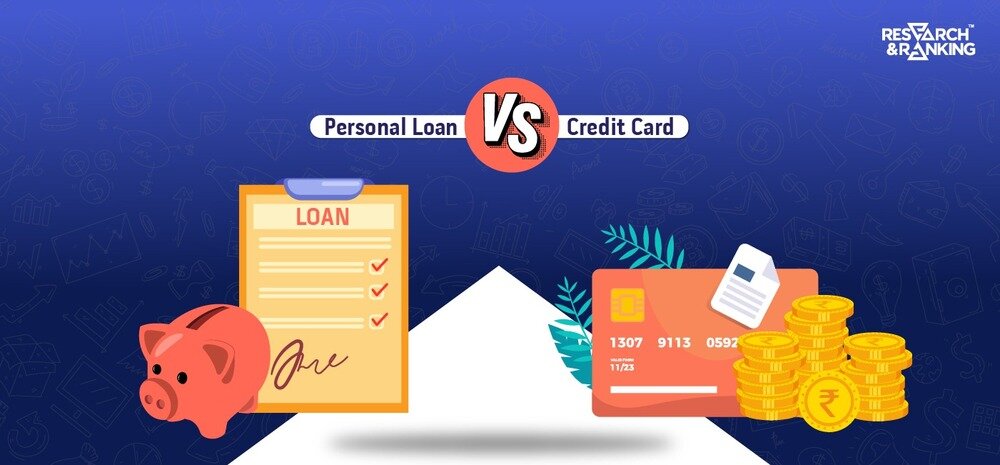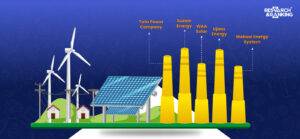You are probably familiar with the age-old wisdom of saving money whenever you can, and that advice holds true. However, there are moments when saving simply is not an option. In such cases, you might weigh the pros and cons of two common financial tools: personal loans and credit cards.
While both can provide the financial support you need, they have distinct terms and conditions. Your decision between the two will depend on your financial objectives and current situation.
To start with, let’s understand when someone really should take out a personal loan or credit card. We will also look into its advantages.
When Should You Consider Taking a Personal Loan?
A personal loan is an unsecured loan that doesn’t require collateral. Here are some situations when getting a personal loan might be a good idea:
- Unexpected Medical Expenses: A personal loan can provide a timely solution if unforeseen medical bills surpass one’s insurance coverage. Despite their higher interest rates, personal loans offer a convenient way to manage medical emergencies.
- For Major Events: When you are short on time to plan finances for significant life events, a personal loan can be a lifesaver. It’s a convenient solution with lower interest rates and flexible repayment options. Some people even use it w
- To Consolidate Credit Card Debt: Personal loan interest rates are often lower than credit card interest rates. If you have multiple credit card debts, taking out a personal loan to pay them off can simplify your finances and potentially improve your credit score.
- Home Renovation: A personal loan can cover expenses if you’re renovating your home and need extra funds. It could also increase the resale value of your property.
What are the Benefits of a Personal Loan?
- Flexibility: Personal loans can be used for various purposes, such as consolidating debt, funding home improvements, or covering unexpected expenses.
- Quick access to funds: Once approved, you can receive the money quickly, often within a few days.
- No collateral required: Unlike other types of loans, personal loans typically don’t require collateral, making them accessible to a wider range of borrowers.
- Fixed interest rates: Many personal loans offer fixed interest rates, providing predictability and stability in repayment amounts.
- Potential for improving credit: Responsible personal loan repayment can help build or improve your credit score.
When Should You Consider Taking a Credit Card Loan?
- Covering Medical Expenses: If you face substantial medical bills, a credit card loan could provide the necessary funds to settle them.
- Managing Emergency Costs: Whether it’s paying utility bills or addressing unforeseen expenses, a credit card loan offers a quick solution to meet urgent financial needs.
- Need for Immediate, Small Amounts: For smaller, urgent expenses like Rs. 15,000, a credit card loan can be a practical option due to its lower loan amount and shorter repayment period, minimizing interest charges.
- Personal Loan Ineligibility: If you cannot qualify for a personal loan, a credit card loan can be an alternative option, provided you have a credit card to apply for the loan.
What are the Benefits of Credit Card?
- Convenience: Easy to carry, widely accepted, and eliminates the need for cash.
- Rewards: Earn points, cashback, or miles on purchases.
- Build credit: Responsible use can improve credit score.
- Purchase protection: Some cards offer insurance against theft or damage.
- Benefits: Access to perks like extended warranties or travel insurance.
Know more about
SIP CALCULATOR | RETIREMENT CALCULATOR | CAGR CALCULATOR | FINANCIAL CALCULATORS
What is the Difference between a Personal Loan and a Credit Card?
Here’s a table outlining the differences between a credit card and a personal loan in India:
| Aspect | Credit Card | Personal Loan |
| Definition | A plastic card issued by banks or financial institutions that allows users to borrow funds up to a certain limit to make purchases or withdraw cash. | Minimum monthly payments are required, typically a percentage of the outstanding balance. Full repayment can be deferred, but interest is charged on the remaining balance. |
| Repayment | A fixed monthly installment is required until the loan is fully repaid. The repayment period is predetermined at the time of loan approval. | The loan amount is determined at the time of loan approval based on factors such as income, credit score, employment history, and debt-to-income ratio. |
| Interest Rate | Interest rates on credit card balances are typically higher than personal loan interest rates. Interest is charged on the outstanding balance. | Personal loan interest rates are usually lower compared to credit card interest rates. Interest is calculated on the entire loan amount. |
| Loan Amount | Fixed borrowing: borrowers receive a lump sum upfront and must repay it in fixed instalments over the loan term. | Credit limit determined by the card issuer based on factors such as credit history, income, and creditworthiness. It can be increased or decreased based on usage and payment behavior. |
| Flexibility | Flexible borrowing: users can borrow up to the credit limit as needed, with no obligation to use the entire limit. Users can also repay and reuse the credit limit. | Fixed borrowing: borrowers receive a lump sum upfront and must repay it in fixed installments over the loan term. |
| Usage | Can be used for various purposes such as shopping, dining, travel, bill payments, etc. | Generally used for specific purposes like home renovation, wedding expenses, medical emergencies, etc. |
| Processing Time | Instant approval for most credit card applications. Card issuance and activation usually take a few days. | Credit card usage and repayment behavior impact credit score. Timely payments can improve credit score, while late payments can lower it. |
| Fees and Charges | Longer processing time compared to credit cards. Depending on the lender’s evaluation process, loan approval can take a few days to weeks. | Processing fees, prepayment charges, late payment fees, and foreclosure charges may apply. |
| Credit Score Impact | Credit card usage and repayment behavior impact credit score. Timely payments can improve credit scores, while late payments can lower them. | Personal loan repayments are reported to credit bureaus. Timely repayments can positively impact credit score, while defaults or late payments can negatively affect it. |
Deciding between a personal loan or a credit card depends on your financial situation and needs. Consider these factors carefully before deciding to ensure you choose the option that best fits your circumstances.
*Disclaimer Note: The securities quoted, if any, are for illustration only and are not recommendatory. This article is for education purposes only and shall not be considerea d as recommendation or investment advice by Research & Ranking. We will not be liable for any losses that may occur. Investment in securities market are subject to market risks. Read all the related documents carefully before investing. Registration granted by SEBI, membership of BASL, and certification from NISM in no way guarantee the performance of the intermediary or provide any assurance of returns to investors.
FAQ
How can I calculate my tax liability as a high-income earner in India?
You can use our online tax calculator to estimate your tax liability based on your income, deductions, and investments. Simply input your financial details, and the calculator will generate your tax liability and recommend tax-saving strategies.
Are there any additional tax-saving options available for high-income earners?
Yes, high-income earners can explore additional tax-saving options, such as investing in the National Pension System (NPS) and the Voluntary Provident Fund (VPF) and contributing to charitable donations under Section 80G of the Income Tax Act.
Can I adjust my tax-saving investments throughout the financial year?
You can adjust your tax-saving investments throughout the financial year to optimize your tax planning strategy. However, ensure that you meet the minimum investment thresholds and adhere to the specified deadlines to avail of tax benefits.
How useful was this post?
Click on a star to rate it!
Average rating 1.5 / 5. Vote count: 2
No votes so far! Be the first to rate this post.
I’m Archana R. Chettiar, an experienced content creator with
an affinity for writing on personal finance and other financial content. I
love to write on equity investing, retirement, managing money, and more.
























